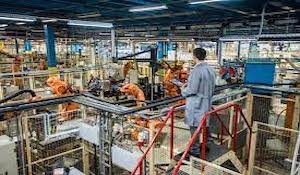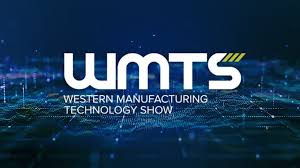Discover the Latest Manufacturing Industry Trends in ERP Implementation
Several Key Trends in the Manufacturing Industry Are Shaping How Businesses Operate Cloud-based Enterprise Resource Planning (ERP) technology can...
3 min read
 Murray Quibell
Aug 30, 2024 3:48:10 PM
Murray Quibell
Aug 30, 2024 3:48:10 PM

Modern ERP solutions for the electronics manufacturing industry are advancing like never before with the arrival of Industry 4.0 and smart manufacturing. These new technologies aren't just making things more efficient; they're transforming how electrical products are designed, produced, and delivered. This blog explains how these technologies are changing the industry and why keeping up is essential.
Industry 4.0 is the fourth industrial revolution. Manufacturing involves using advanced technologies like cyber-physical systems, the Internet of Things (IoT), and artificial intelligence (AI). It builds on the digital advances of the previous industrial revolution. Still, it takes them further by creating "smart" factories where machines, systems, and people can communicate and work together in real time.
Smart manufacturing is how Industry 4.0 is implemented. It uses automation, data analysis, and machine learning to make production processes more efficient and flexible. Data is collected at every step in a smart manufacturing setup, helping manufacturers make better decisions, streamline workflows, and reduce waste.
As manufacturers adopt smart manufacturing and Industry 4.0, having a strong Enterprise Resource Planning (ERP) system becomes essential. ERP systems help manage the complex data and processes introduced by these new technologies.
A modern ERP system integrates all aspects of manufacturing, from inventory management to production scheduling, into one platform. This ensures that data is consistent across all departments, leading to better decisions and smoother operations. ERP systems are crucial for handling the large amounts of data generated by IoT devices and AI tools in a smart factory.
Industry 4.0 and smart manufacturing are rapidly changing the electrical manufacturing industry. Manufacturers embracing these technologies are seeing significant improvements in efficiency, flexibility, and sustainability. However, a comprehensive ERP system is vital to benefit fully from this transformation. An ERP system not only helps manage the complexities of modern manufacturing but also helps manufacturers stay competitive in a digital world.
By adopting smart manufacturing and harnessing the power of Industry 4.0, the electrical manufacturing industry is set for a future of innovation and growth. Don’t fall behind—start your journey toward digital transformation today with the right ERP solution.
Acumatica ERP Software is more than just a tool for managing your operations – it’s a strategic partner that empowers electronics and electrical manufacturers to succeed in a rapidly evolving industry. By streamlining operations, enhancing visibility, fostering collaboration, and providing the flexibility to adapt to change, Acumatica helps manufacturers stay ahead of the competition and achieve their business goals.
Whether you’re an established manufacturer looking to optimize your operations or a growing company seeking to scale your business, Acumatica’s cloud ERP for electronics manufacturing offers the tools and support you need to succeed. Embrace the future of manufacturing with Acumatica, and position your company for long-term success. Contact Aqurus Solutions for a no-obligation conversation or schedule a meeting for a customized demo.

Several Key Trends in the Manufacturing Industry Are Shaping How Businesses Operate Cloud-based Enterprise Resource Planning (ERP) technology can...

Aqurus Acumatica Manufacturing ERP Partner Exhibits at Western Manufacturing Technology (WMTS 2025) Booth #1508 The Western Manufacturing...